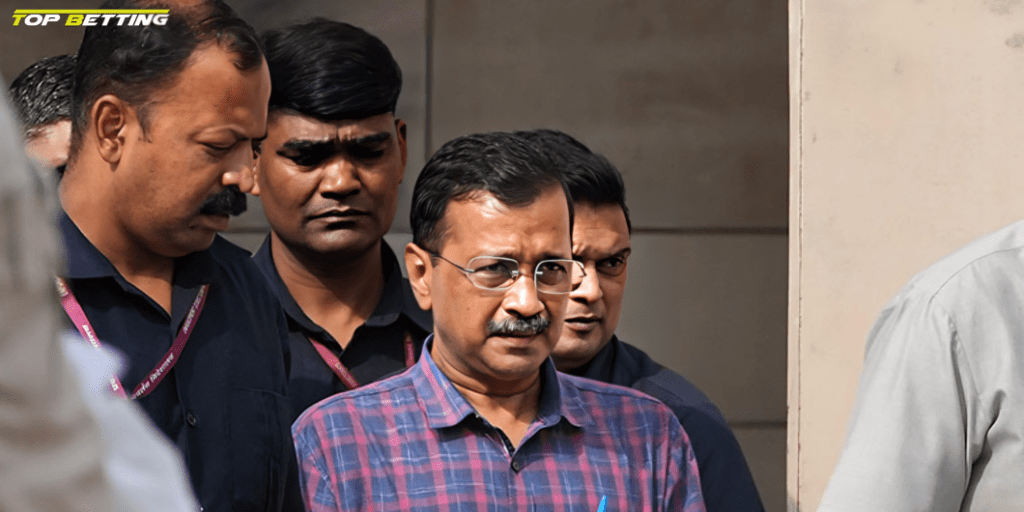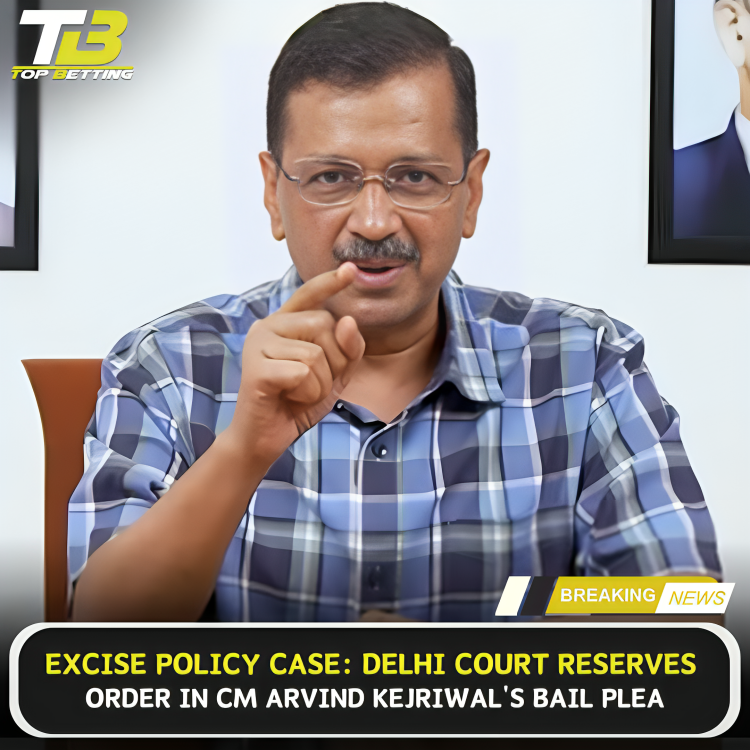
Delhi court reserves order in CM Arvind Kejriwal
In a significant turn of events, a Delhi court has kept the decision pending on the bail plea filed by Chief Minister Arvind Kejriwal in relation to an excise policy case. This legal battle has captured the attention of the nation as Kejriwal, the current Chief Minister of Delhi, faces allegations of orchestrating a modification in the excise policy that is believed to have had adverse effects on the public exchequer.
The court’s summoning of Arvind Kejriwal and the subsequent legal proceedings have sparked intense curiosity among political analysts and the general populace alike. The impending verdict on Kejriwal’s bail plea is eagerly anticipated, as it holds the key to his political future and the trajectory of the ongoing investigation. The court’s decision will not only impact Kejriwal’s career but also underscore the significance of upholding legal protocols and ensuring transparency in governance.
As the case evolves, all eyes are fixed on the court’s impending pronouncement, which is poised to redefine the political dynamics in Delhi.
Background of the Case
The genesis of the excise policy case dates back to a controversial alteration allegedly sanctioned by Arvind Kejriwal, which purportedly favored certain stakeholders while prejudicing the public exchequer. The case gained momentum when the court intervened, summoning Kejriwal to elucidate his role in the policy modification. The intricacies of the excise policy and its implications on the state’s revenue have come under intense scrutiny, with the court aiming to ascertain the legality and ethicality of the alterations.
The unfolding of events has not only put Kejriwal under the legal spotlight but has also set the stage for a broader discourse on governance and fiscal responsibility.
The legal battle surrounding the excise policy case has transcended its immediate implications, evolving into a symbol of accountability and integrity in public service. Kejriwal’s defense team has vehemently refuted the allegations, citing procedural regularities and the absence of concrete evidence to substantiate the charges leveled against the Chief Minister.
However, the prosecution has presented a compelling case, underscoring the financial ramifications of the policy change and its purported impact on the state’s fiscal health. The courtroom drama has unfolded against a backdrop of heightened public interest, with citizens closely monitoring the proceedings and anticipating a definitive resolution.
Arvind Kejriwal’s Bail Plea
Arvind Kejriwal’s decision to seek bail in the excise policy case marks a critical juncture in the legal battle that has engulfed the Chief Minister. The bail plea, which now awaits the court’s ruling, represents Kejriwal’s attempt to secure his liberty amidst mounting legal challenges and political pressures.
The outcome of the bail plea holds immense significance, as it not only determines Kejriwal’s immediate freedom but also influences the trajectory of the larger case and its implications on governance and public trust. Kejriwal’s legal team has presented a robust defense, emphasizing his commitment to transparency and accountability in all administrative decisions.
The bail plea hearing has witnessed intense legal arguments from both the prosecution and the defense, each presenting compelling narratives to sway the court’s opinion. While the prosecution has underscored the alleged financial irregularities stemming from the excise policy change, the defense has vehemently defended Kejriwal’s actions, portraying him as a victim of political vendetta.
The courtroom dynamics have been charged with emotion and anticipation, reflecting the gravity of the case and its potential reverberations on the political landscape of Delhi. Kejriwal’s fate hangs in the balance as the court deliberates on his plea, with the outcome poised to shape his future and the course of the investigation.
Arguments Presented by the Prosecution
The prosecution’s arguments in the excise policy case have centered on establishing a direct link between Arvind Kejriwal’s purported actions and the adverse financial implications that ensued. By meticulously dissecting the sequence of events leading to the excise policy alteration, the prosecution has sought to demonstrate a pattern of misconduct and fiscal negligence on the part of the Chief Minister.
Key to the prosecution’s narrative is the assertion that Kejriwal’s decision-making process lacked transparency and adherence to established norms, thereby warranting legal scrutiny and accountability.
Moreover, the prosecution has cited precedents and legal frameworks to underscore the gravity of the charges levied against Kejriwal, painting a picture of systemic malpractice and ethical breaches within the realm of governance. The prosecution’s arguments have resonated with sections of the public and political commentators, who view the case as a litmus test for democratic values and institutional integrity.
As the prosecution mounts a robust case against Kejriwal, the courtroom drama intensifies, setting the stage for a climactic resolution that could redefine the contours of political accountability.
Arguments Presented by the Defense
In response to the prosecution’s allegations, Arvind Kejriwal’s defense team has launched a vigorous defense, refuting the charges of impropriety and financial mismanagement leveled against the Chief Minister. The defense’s narrative revolves around portraying Kejriwal as a conscientious leader dedicated to upholding the public interest and fostering transparency in governance.
Central to the defense’s argument is the assertion that the excise policy alteration was a well-intentioned decision aimed at streamlining administrative processes and promoting economic growth.
Furthermore, the defense has underscored procedural regularities followed in implementing the excise policy change, highlighting the absence of any concrete evidence linking Kejriwal to financial misconduct. By invoking Kejriwal’s track record of anti-corruption activism and governance reforms, the defense seeks to debunk the prosecution’s portrayal of the Chief Minister as a harbinger of malfeasance.
The courtroom battle between the prosecution and the defense underscores the clash of narratives and legal interpretations, underscoring the complexity and stakes involved in the excise policy case.
Conclusion

The excise policy case involving Arvind Kejriwal stands as a watershed moment in Delhi’s political landscape, underscoring the delicate balance between administrative prerogatives and public accountability. The legal battle surrounding the excise policy alteration has catalyzed a broader conversation on governance ethics and institutional transparency, challenging existing paradigms of executive authority and legal scrutiny.
As the court reserves its order on Kejriwal’s bail plea, the nation awaits a definitive resolution that will not only impact the Chief Minister’s future but also resonate with the broader imperatives of ethical governance and democratic accountability.











